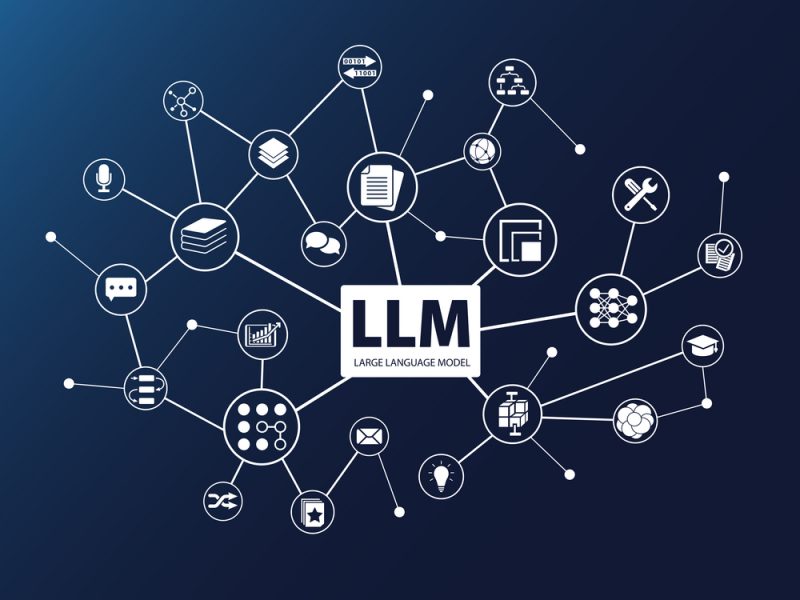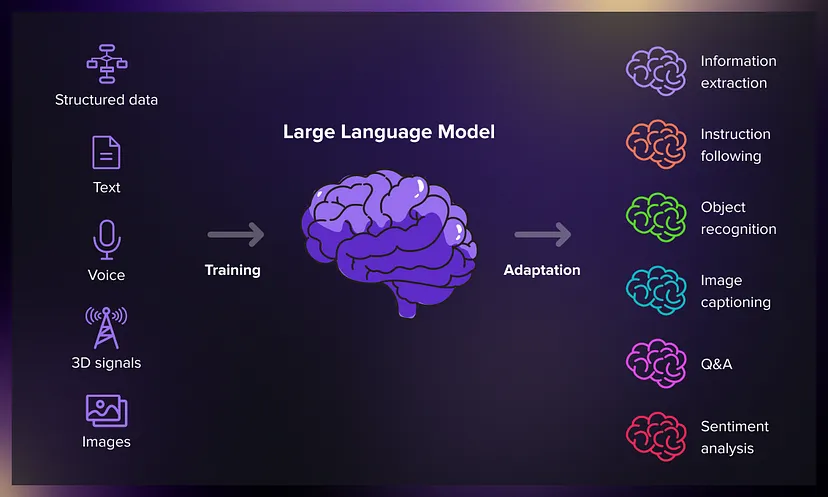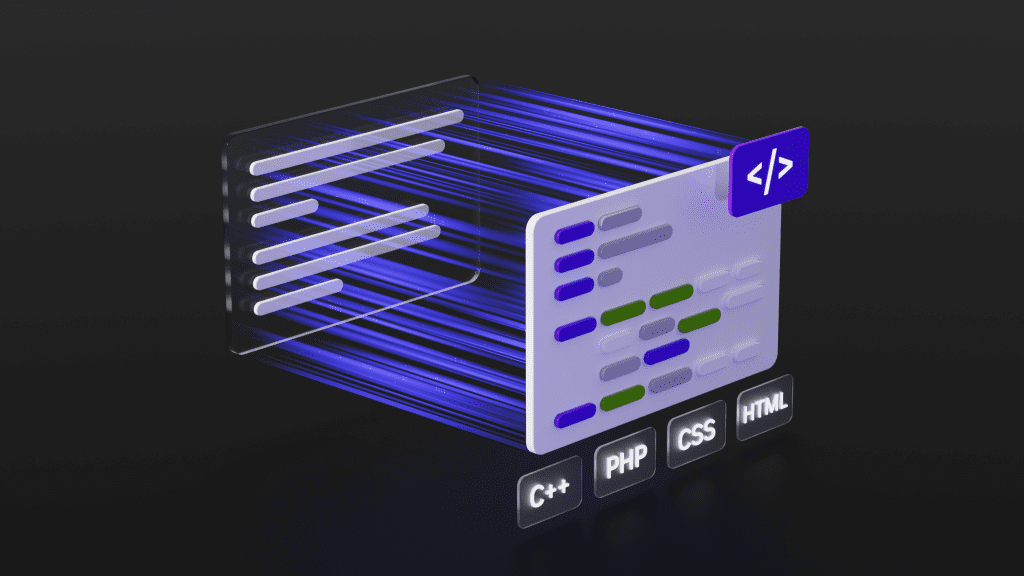Large Language Models (LLMs) are deep learning models characterized by their extensive training on vast amounts of data. These models are supported by a series of neural networks that include an encoder, a decoder with self-attention capabilities, and a fundamental transformer. The encoder and decoder work together to extract meanings from text sequences and understand relationships between words.
LLMs possess unsupervised learning capabilities, enabling them to learn autonomously. Through this process, LLMs acquire knowledge of grammar, languages, and information. Unlike previous iterative neural networks, LLMs process entire sequences in parallel, significantly reducing training time.

The architecture of LLMs typically involves the use of very large models with billions of parameters. These models are often trained on data obtained from the internet or large datasets, such as Common Crawl or Wikipedia.
The significance of LLMs lies in their flexibility to perform a wide range of tasks. These models can successfully handle various tasks, including text generation, document summarization, language translation, and sentence completion. They are also noted for their ability to make predictions based on relatively few prompts. LLMs operate on the principle of word representations, using multidimensional vectors to better understand word meanings and relationships. Transformers process these word representations to handle text and produce unique outputs for various tasks.

Applications of LLMs include text writing, knowledge base answering, text classification, and code generation. These models are typically trained on high-quality datasets and can be fine-tuned for different tasks. The future of LLMs lies in expanding features, multimodal training, workplace transformation, and interactive AI. These models are advancing towards human-like performance and hold significant potential across many industries.
Example LLM Models
Below are examples of how LLM applications can be utilized across various sectors. If desired, we can design a custom LLM model tailored to your needs.
Content Generation
If your primary goal is to produce high-quality text, custom-developed LLM models can provide creative and consistent outputs.
Customer Support Chatbots
For creating dialogue-focused AI systems that handle customer inquiries effectively, a customized LLM model can be an excellent option.

Sentiment Analysis for Marketing
LLM models can excel in tasks like sentiment analysis from social media posts or product reviews, assisting businesses in making data-driven decisions.
Legal Document Analysis
Highly specialized LLMs in legal language processing can offer better performance in areas such as contract analysis, case law research, or compliance checks.
Medical Information Extraction
In healthcare settings where domain-specific knowledge is crucial, a tailored LLM can provide more accurate results when analyzing patient records or scientific literature.
Code Generation and Programming
Models like GPT can assist in generating code snippets based on natural language descriptions, streamlining the programming process and enhancing productivity.

Language Translation Services
Some large language models (LLMs) excel in machine translation tasks. Choosing a model fine-tuned for specific multilingual applications can enhance translation quality between relevant language pairs.

If you are looking to develop and integrate such LLM language models into your system, please contact us. We can create and tailor models to meet your specific translation needs.
